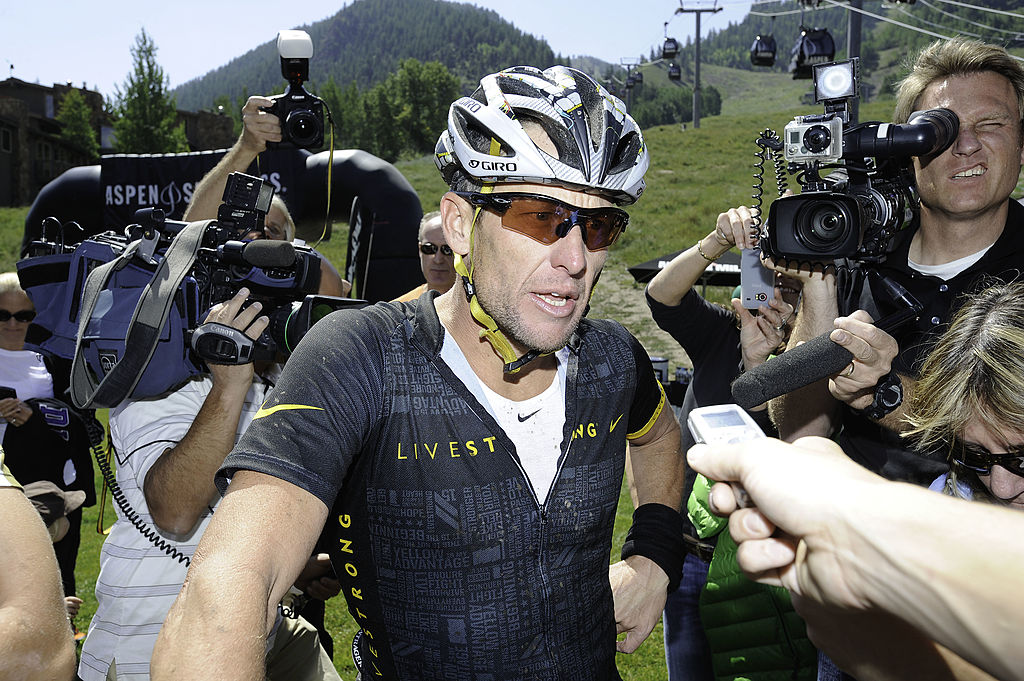Sports
Lance Armstrong Fell From Tour de France Champion to America’s Most Hated Athlete

Sports fans are nothing if not passionate; no matter what they feel, whether it’s positive or negative, becomes a firmly held conviction. Unfortunately for Lance Armstrong, he learned that reality the hard way.
During his reign as the world’s top cyclist, Armstrong became a hero and a living testament to the power of the human will. Eventually, though, his reputation changed; after his infamous cheating scandal came to light, he became America’s most hated athlete.
Lance Armstong’s rise to international stardom
In the ranking of mainstream professional sports, cycling usually sits pretty low on the list. That reality, however, didn’t prevent Lance Armstrong from becoming an international star.
As laid out in a USA Today timeline, Armstrong started out competing in triathlons before focusing on cycling. He turned pro in 1992 and even won a few Tour de France group stages, but a life-changing moment was waiting just around the corner.
In 1996, the cyclist was diagnosed with testicular cancer, which had spread throughout his body, including his brain and lungs. While that could have ended his life, let alone his athletic career, but Armstrong beat the odds. He won his first Tour de France title in 1999 and repeated the feat every year until 2005.
Based on that historic run of dominance, Lance Armstrong became a symbol for human determination and our ability to triumph over adversity. His time as a hero, however, would ultimately come to an end.
Going from hero to zero
RELATED: Lance Armstrong Once Faced a $100 Million Lawsuit From the U.S. Government
Thanks to his triumph over cancer and his incredible winning streak at the Tour de France, Lance Armstrong became a global hero. Ultimately, however, he would suffer a dramatic fall from grace.
According to the Guardian’s timeline of the cyclist’s career, Armstrong was no stranger to doping allegations. During the 1999 Tour de France, he tested positive for corticosteroid triamcinolone but managed to provide “a back-dated doctor’s certificate claiming the substance is in a skin cream.” In 2005, L’Equipe claimed Armstrong’s urine samples from the same event contained another banned substance; those allegations, however, didn’t stick.
In 2012, however, one accusation finally stuck. In a shocking revelation, the US Anti-Doping Agency announced that Armstong and his US Postal Service cycling team had “ran the most sophisticated, professionalized, and successful doping program that sport has ever seen.” The cyclist initially denied any wrongdoing, but ultimately admitted that he had used performance-enhancing drugs.
Unsurprisingly, Armstrong was stripped of his seven Tour de France titles; he had gone from a heroic underdog to a sports pariah.
Lance Armstrong was once voted America’s most disliked athlete
RELATED: Lance Armstrong’s Scandal Resulted in Livestrong Losing Millions in Donations and Revenue
During his reign as seven-time Tour de France champ, Lance Armstrong became an inspirational icon. After his cheating came to light, however, he fell to the opposite end of the spectrum.
In 2013, a Neilsen poll found that Armstrong was “America’s most disliked athlete. As explained by a Forbes article from the time, “candidates were limited to active athletes with a minimum of 10% awareness,” and 15% of those voters chose the cyclist.
While his cheating played a major role in the change, his conversation with Oprah didn’t seem to help matters. The Oprah interview hurt him, he came off as pompous, arrogant and unapologetic,” Stephen Master, senior vice president of sports at Nielsen, explained.
Although Armstrong has probably fallen off the ‘most hated’ rankings since then, the poll does confirm two realities: on the whole, sports fans don’t like cheaters, and they don’t care for insincerity, either.











